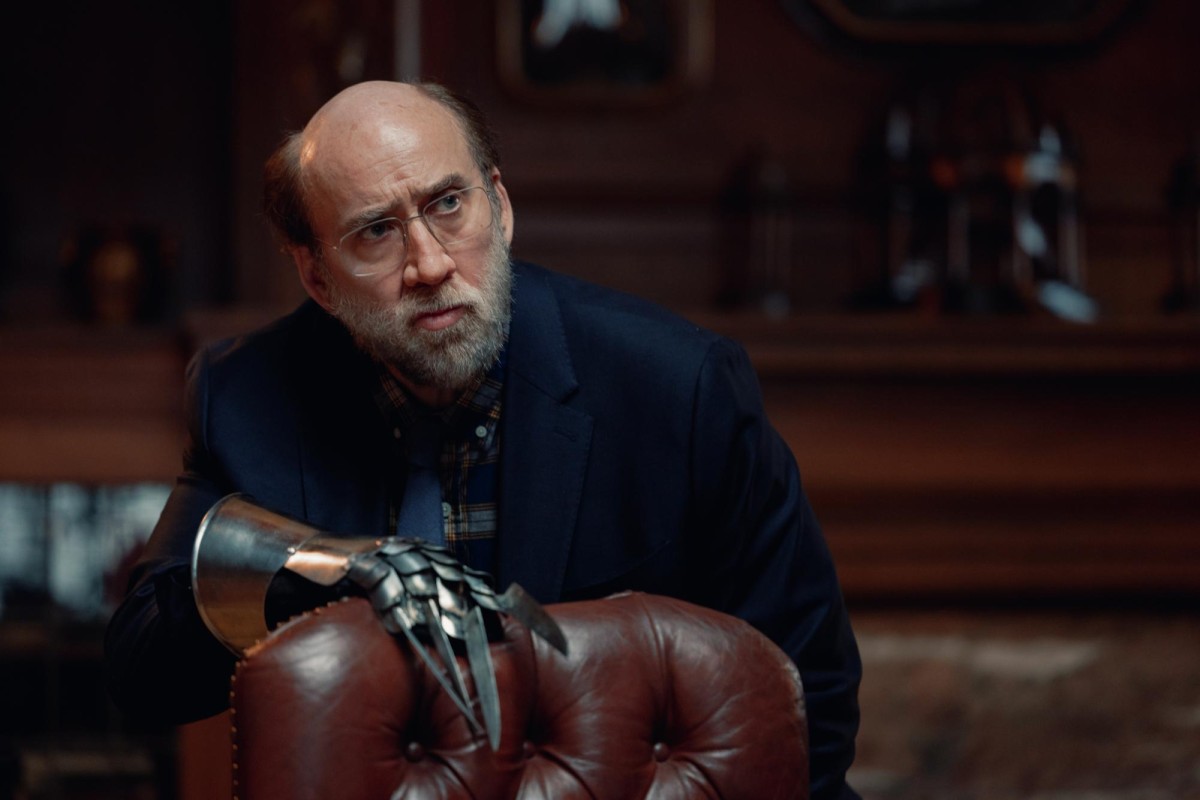It’s no secret that Nicolas Cage knows how to handle a boisterous role. Be it a father attempting to kill his kids in “Mom and Dad,” the legendary baker of “Moonstruck,” or an executive transforming into a bloodsucker in “Vampire’s Kiss,” Cage has seemingly been pigeon-holed as an almost exclusively theatrical performer.
While he certainly can bring movie-star legitimacy to outlandish ideas and tense characters with unrivaled ease, Cage is often at his best in a completely different register — when he’s internalizing the self-loathing and midlife crises of passive, exhausted men. For “Dream Scenario,” Cage shaves his head, grows a beard and loses some of his movie-star shine.
As Paul Matthews, an inadequate, schlubby biology professor, Cage gives an awkward honesty to his character — a kind man, but a bit of a loner. Outfitted with generic sweaters and dorky spectacles, Paul becomes a minor celebrity when tens of thousands of people inexplicably start dreaming of him at night, often as a docile bystander. After Paul starts appearing in these dreams, he is sent through a series of shake-ups, from a home invasion to signing with a PR agency, wanting to write a book about biology and more. Cage takes this happenstance seriously, playing Paul with an edginess that becomes apparent once his life unfurls into disaster.
Paul undergoes an odyssey of uncomfortable events in “Dream Scenario,” which are often entertaining yet scattered. At its best, these segments hint at stranger, more intriguing motifs. Nearly everyone in the film has dreamt of Paul, so personalized versions of him appear throughout, some imagined by people who know him and some who don’t. In a wonderful scene early on, Paul’s wife Janet (Julianne Nicholson) explains a dorky fantasy she has about him, involving horses and David Byrne. It’s Janet’s perception of Paul at his best, which folds in a certain level of sweetness. Later, Paul meets Public Relations agency worker Molly (Dylan Gelula) who attempts to transport Paul into the dream she had of him.
Both of these sequences capture the opposite poles of desire: how you can be attracted to someone you’ve been married to for 15 years, as well as to a stranger who managed to slip into your subconscious. But the latter scene’s scatological crescendo undercuts it, leaving questions about its performative nature unexamined.
While Cage’s cozy, intentionally pathetic performance manages to act as a guiding hand, director and writer Kristoffer Borgli tends to have too much on his mind, taking us through the cavities of fame, backlash, social media and more. Borgli hones in on the absorbing idea that you can feel like you know someone from just a few details, which resonates especially once Paul’s dream appearances become violent or malicious.
Unfortunately, Borgli tries to map a cancel culture allegory onto “Dream Scenario” by depicting the personal and professional shunning that Paul experiences. The questions of backlash and Paul’s cancellation fall flat, mainly because Borgli doesn’t seem to know what he wants to say. It’s an entertaining part of Paul’s terrible, horrible, no good, very bad year, but not an insightful one.
Despite this thematic smoothie of sorts, Borgli manages to create some lasting visuals, primarily in the dream sequences where something is going seriously wrong. When paired with Benjamin Loeb’s warm, inviting camera work, eventual murderous Paul and onlooker Paul are both ominous figures, especially when paired with the generic peculiarity of those dreams. You start to truly understand why Paul’s character is so unnerving to so many people.
The opposite is true with the ending of “Dream Scenario,” where the dad-joke corniness of Cage’s performance is fully on display, simultaneously creating a silliness and a melancholy that stings. To jump from a good film to a great one, “Dream Scenario” could have used more of the tonal balance that wraps it up beautifully.
“Dream Scenario” is currently showing in select theaters.
Contact Ethan Beck at [email protected].























































































































































